Widows working together for a better life
The Maasai Stoves & Solar Project of the ICSEE is seriously dedicated to working to help widows reach for a better life. Expanding our collaboration with the Global Fund for Widows (GFW) is making a real difference.
The Maasai Stoves & Solar Project of the ICSEE is seriously dedicated to working to help widows reach for a better life. Expanding our collaboration with the Global Fund for Widows (GFW) is making a real difference.
The polygamy of the Maasai, arranged marriages, and lack of educational opportunities due to early marriages all lead to the special vulnerability of these women. When a husband dies or stops contributing to the welfare of a particular wife and her children, it results in a very difficult situation.
The collaboration with the Global Fund has grown and become much more powerful
We have now established 26 Maasai Widow’s Groups in the villages north and west of Arusha. Each group has 25 women. This makes a huge impact.
The central management structure has evolved as well. There are now Global Fund for Widows “Country Directors” who work closely with the Global Fund leaders in New York. Our organizer, Mesha Singolyo, now serves as this Tanzanian Director.
Collaborating with Maasai women
From the beginning, the International Collaborative‘s work with the Maasai has been based on creating a broad collaboration with women. Maasai women are more constrained in their lives than men. For many of them, working with the Maasai Stoves & Solar stove installation teams has opened up an entirely new path towards improving their lives.
As organizers, the ICSEE began to appreciate that our greatest gift was giving Maasai women a chance to add a new dimension to their lives; the chance to work with others to make life better. Homes don’t have to be smoky. Night doesn’t have to be dark. And women could be organized for enterprises benefitting them all.
The collaboration for widows begins
In 2018 the leaders of the GFW and ICSEE met to analyze the situation of Maasai widows and find the best way to introduce them to the international program..
Backed by GFW funding, ICSEE organized 25 widows in each of three villages with the leadership of Mesha Singolyo, who was an experienced leader of the district government’s community development department.
Mesha Singolyo
These first three groups, with 25 widows each in the villages of Mtimoja, Nanja and Longido first showed how good organization and well-chosen collective businesses work.
The 25 women hone their business skills, are well capitalized, and work with local leaders and men glad to be working with them for their success and well-being.
Organizing plan for Widow’s Groups
The plan for organizing, developed by Mesha Singolyo, starts with engaging village authorities to solidify their participation and support. These men wish they could do more for all the people of their village. They appreciate that we are coming with critical funds, allowing us to organize widows in their village. And this has a big impact, as widows often represent the villagers most in need.
Preparing for success
When a group is organized it elects leaders to run planning meetings, manage funds, and implement projects .
We bring training for the women to establish and operate a cooperative bank. Each woman contributes to the bank weekly. This allows loans to be available to them when they want need it for family, or to strengthen their individual small businesses which most of the women have. The weekly contribution varies group to group and each group decides what is possible for them.
When a group is organized it elects leaders to run planning meetings, manage funds, and implement projects.
We bring training for the women to establish and operate a cooperative bank. Each woman contributes to the bank weekly. This allows loans to be available to them when they want need it for family, or to strengthen their individual small businesses which most of the women have. The weekly contribution varies group to group and each group decides what is possible for them.
We have found that there are men in all villages who appreciate what the women are doing and voluntarily form advisory groups. These men are Maasai herders, to help the women be successful in the livestock collective businesses they start.
Ms. Singolyo has created a team with three additional persons from the International Collaborative staff who can join her in serving the growing number of groups. The organizing skills they are gaining will serve them well in the future, as they participate in the development of their society.
Selecting the new businesses—livestock is a good choice
A very important innovation is the collective business established by the women. They women themselves work hard to collect about $1,250 and then we provide a matching amount. This capital is for a livestock fattening business. Groups at the beginning chose goats, but now all but a few of the groups choose cattle. Cattle are ess susceptible to disease, and with the help of the advising men, they can take good care of them. A good thing about this kind of business in any village is that the buyers are from outside the village, people in the food supply chains and therefore the money for purchase comes in from outside the village. It is true wealth addition.
A successful program
The village leaders are getting into even stronger supportive roles. The Village Chairmen, Community Development Officers, and Councilors of the District Government are all enthusiastically involved and we find they often join the advisory groups to help the women in their livestock businesses. .
Ms. Singolyo frequently expresses her joy in finding women in these villages so excited to have the opportunity to organize productively and so ready to apply their intelligence and skills in this way.
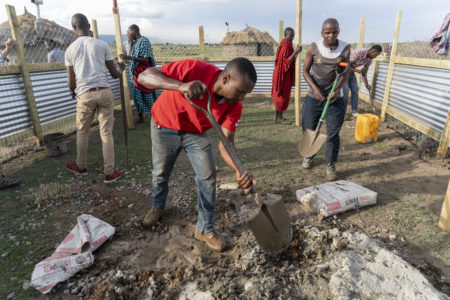
With gratitude
ICSEE is grateful for the Global Fund for Widows collaboration. It is remarkable when the goals, expertise, community relations, and resources come together so constructively.
Widow’s programs in the past
Earlier, the Maasai Stoves & Solar Project operated cornflour mills. They were the only women-led mills in the region. They provided employment for Maasai women, especially widows, and were established originally with the help of CODEGAZ, a French NGO of volunteers from the GDF Suez Corporation.
When a mill is located right at a market, as these were, customers can buy corn, join the queue, and have their corn ground into flour while they wait. And if the women have the time, the mill queue becomes a warm and friendly social setting, as well.
The first Maasai Stoves & Solar mill was located at the big market outside Mto wa Mbu in the Rift Valley. The women of the Monduli Pastoralists Women’s Organization (MPWO) moved the mill to the center of Selela village. The second mill was located at the market in Monduli Juu. Cost and salaries were met each week, and a good profit was fed back into the betterment of the lives of Maasai women.
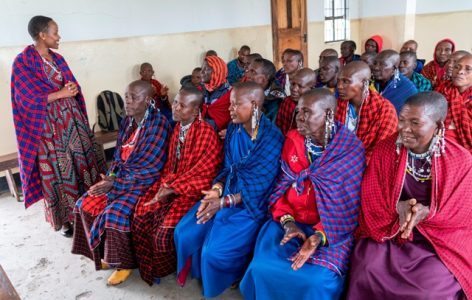
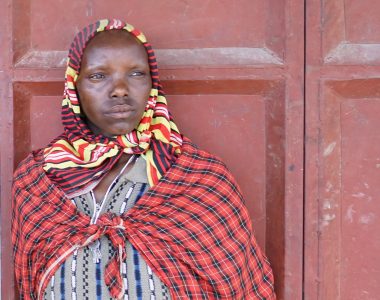
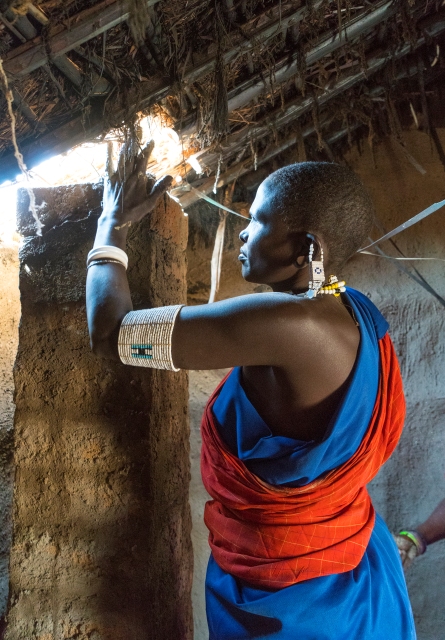
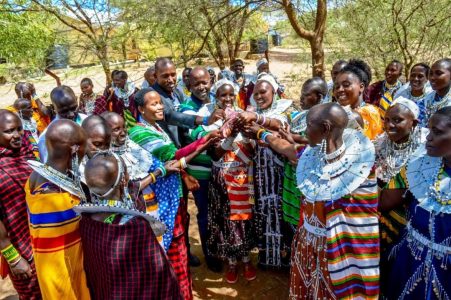
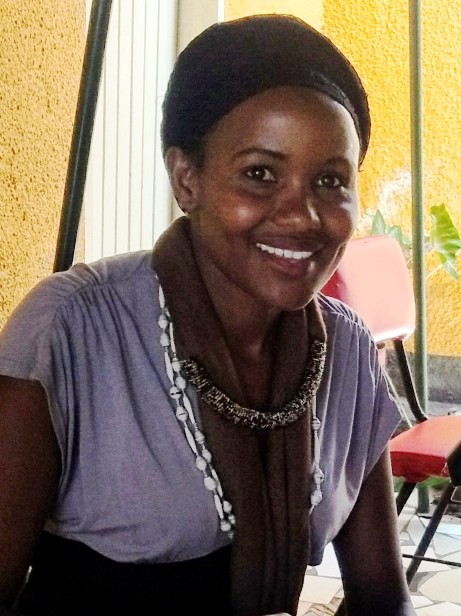
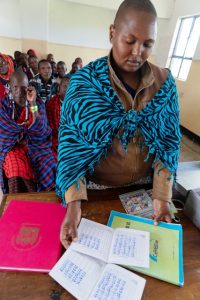
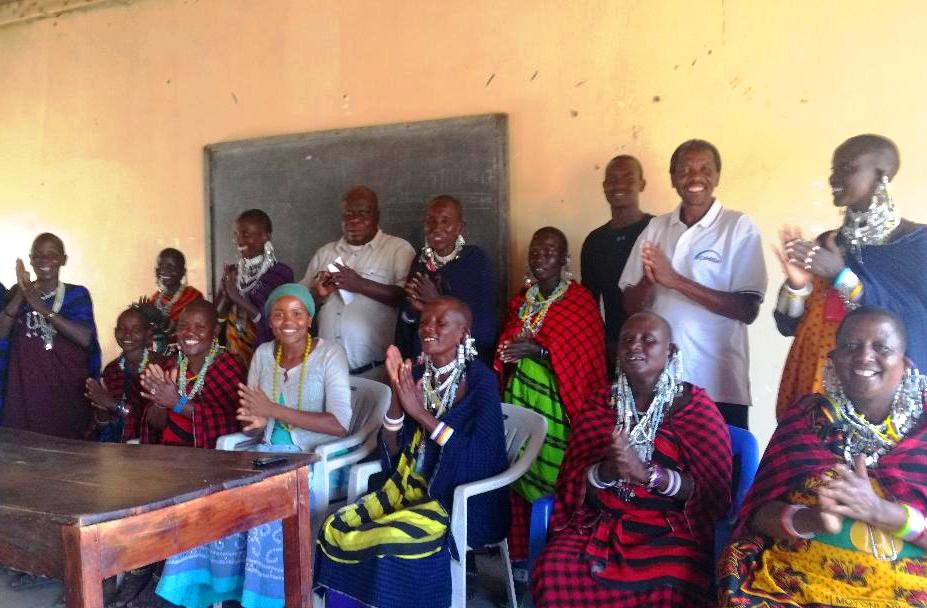
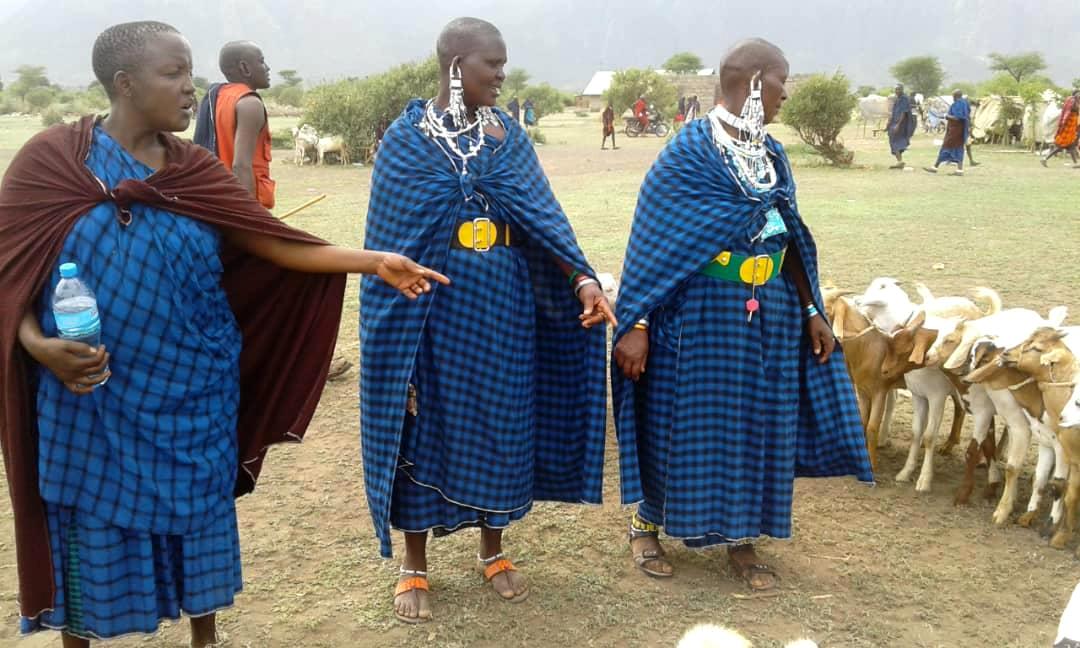

 International Collaborative for Science, Education, and the Environment
International Collaborative for Science, Education, and the Environment